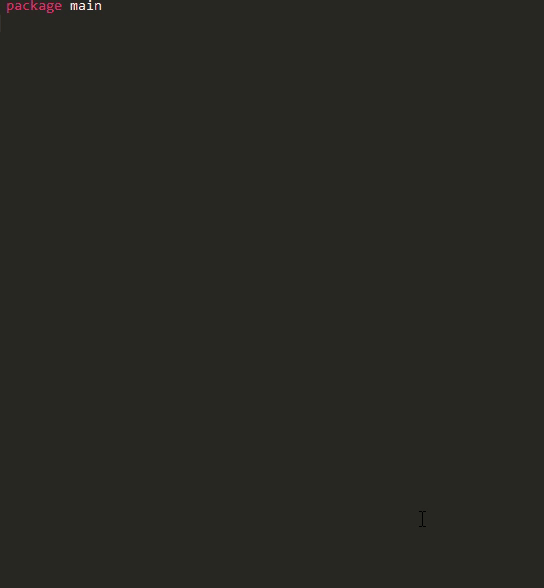English / 中文
betterGo implement parts that I think Golang missed
Provide the real interface{} to you so that you can use it in your code. Before deployment, just use translator to generate specific type code, in which way will not affect your performance.
Here are all generic functions:
enum.Reduceenum.Mapenum.Delete: Delete slice's first element for which fun returns a truthy value.enum.Find: Returns slice's first element for which fun returns a truthy value.
Use go ast to analyse your code where using generic functions, generate specific function for your types and replace your original call expressions.
I do this shit for you :P
The current Go doesn't have generics (like template in c++, interface in Java).
The following ways are often used in Go in order to implement generics:
-
Interface (with method)
Pros: No third-party libraries required, clean and universal code.
Cons: Requires some additional amount of code, and perhaps a less dramatic runtime overhead.
-
Use type assertions
Pros: No third-party libraries required, clean and universal code.
Cons: Requires execution of type assertions, runtime overhead for interface conversions, and no compile-time type checking.
-
Reflection
Pros: Clean code.
Cons: Considerable runtime overhead, and no compile-time type checking.
-
Code generation
Pros: Extremely clean code, compile-time type checking, no runtime overhead.
Cons: Requires third-party libraries, larger compiled binaries.
betterGo is a generic implementation of code generation.
If you want to use betterGo to implement generics by automatically generating code, have a look at the following example:
There are test cases in the project, for example, the code that needs to be generic is test/map/map.go, if you want to use the interface{} function, just enum.Map.
If you want to generate a function of a specific type, run this command: go run main.go -w -f test/map/map.go
Then you'll find that test/map/map.go has changed, enum.Map has become enum.MapOriginFn(origin, fn).
After that you can see that the project directory generates: utils/enum/map.go, which is a function of a specific type.
If you want to work with us on this project, you can look directly at the code, find the package related to AST and try to understand the relevant function so that you can easily understand the project and the code.
If you want to start with theory, you can find some information on AST and study it briefly.
-
Load the file/directory to be manipulated
-
Syntactic analysis by
ASTASTcan analyze the nature of each statement, such as:GenDecl(General Declaration): Includes import, constant declaration, variable declaration, type declaration.AssignStmt(Assignment Statement): Includes assignment statements and short variable declarations (a := 1).FuncDecl(Function Declaration):TypeAssertExpr(Type Assertion Expression)CallExpr( Call Expression)
-
When a statement containing the value/type of a variable (
AssignStmt,FuncDecl) is analyzed, the value and type of the variable are recorded and a mapping between them is established so that the type of the variable can be obtained from the variable name in subsequent sessions. -
When a function call expression (
CallExpr) is found, it is checked whether the function is provided by us, and if it is, the code that deals specifically with that type is generated from the type corresponding to the argument name recorded in the previous step and stored in the specified path (if code of the same type has already been generated before, it is not repeated). -
Replaces the original function call expression in the original code with a new function call expression that calls the newly generated function from the previous step, and updates the import package.
